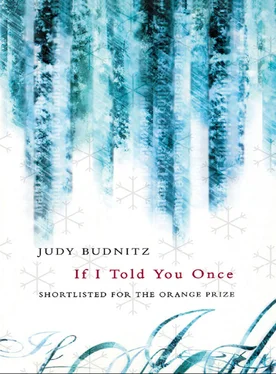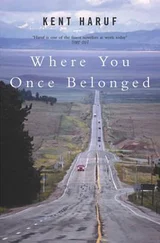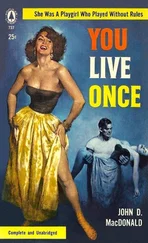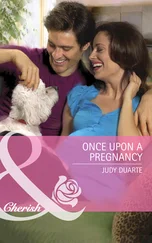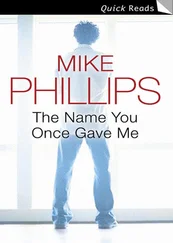I dreamt of them sometimes, and woke with my hands pressed to my ears.
There came a time when they began to speak, more vehemently than before, about a darkness rising up, a dark tide turning and coming to wash over us. Of atrocities beyond our comprehension, bodies piled high as haystacks, blood flowing like rivers through the streets, fire that would roll across the earth, blotting out the sun and making everything black. They spoke urgently of these things, gesturing, their spit flying in our faces.
But we ignored them, we told ourselves the darkness they spoke of was merely the next nightfall, or their own encroaching senility and approaching deaths which we secretly hoped for, to be rid of them. They’re mad, we said. Don’t listen, we told each other.
And it happened that it all came to pass, everything, just as they had said, with biblical accuracy. By then I had left the village, I had sought to escape their wagging tongues, the tugging of their crabbed fingers, the gossip they told of a future that was written, sealed, inescapable. As irrevocable as the past.
I told you so, they must have said when everything did come to pass. When the walls came down and the fire burst forth and the people raised their hands above their heads in supplication and swayed like a field of wheat in the wind.
I was not there to hear their voices ring out yet I heard the words anyway, those words followed me long afterward like a shadow, a slug trail, a mocking school yard chant: I told you so I told you so I told you so.
My mother taught me everything she knew, and for a long time I thought it was all I would ever need to know.
I sometimes saw the mother-love in her face, that animal fierceness, when she gathered my brothers and sisters to her, crushing them against her belly as if she wanted to swallow them whole. I saw it in her when they fell ill with fevers, when they were late coming home and she scanned the darkening forest for them, calling their names like a holy summons.
I saw it when Ari came to her and lay his head in her lap, his legs folded beneath him like a dog’s, nuzzling against her. She could trace his wanderings by the scars on his back. I saw how she wanted to fold her wings over him, conceal him, though he was bigger than she was.
That smell of his when he came back from the woods. The crust beneath his long yellow nails. He was unnatural.
I knew better than to say anything more about it in front of my mother.
Our neighbors came complaining of him, of animals he had fondled and stroked so roughly they collapsed. My mother looked at them and said: He’s only a child, he knows not what he does.
Some of the neighbors gave up when they saw my mother’s stubborn chin. But others persisted, pounding on our door every evening, demanding restitution. One called: Send your son over to pull my plow, seeing as how he killed my donkey. My mother ignored them, though their pounding made the bowls of soup jump on the table. Nails popped from the walls.
Those neighbors who persisted woke up several mornings later to find their beds infested with fat white worms, worms that burrowed into the crevices of their bodies as if seeking warmth. The worms bored into the flesh of their legs and bellies, as if they were corpses, leaving oozing tunnels to mark their progress.
They stopped bothering us; I suppose they decided to take their complaints elsewhere.
My mother instructed me to watch when she next gave birth. The cold room gradually grew hot as a furnace from the heat of her body and the windows steamed up. It was strange to see her lying down, splayed out like an overturned beetle. Her hair escaped her braid, it clung to her face and the bedclothes and wrapped itself around my hands as I wiped the sweat on her face.
She glared at me. I can wipe my own face, she said. I don’t need you here , I need you there , to see what I can’t.
I did not want to, but I lifted her skirt; she had not even undressed, she had stopped her sweeping only moments before. Her breath gusted through the room, lifted the hair from my damp forehead.
I saw her legs which I had never seen before and they looked just like mine, thin with knobby knees, fine dark hairs. Then I looked between her legs, and that was a sight.
It was something swollen, juicy, turned inside out. I thought I saw the scar, the place where her flesh had torn when I was born and then grown together again. I felt guilty for the damage I had done her. She was straining at the seams. I could see already the bulge of a skull, mottled white, a tracing of veins under skin, pushing outward larger and larger like a boil about to burst.
Remember, remember, this is what it is like, I told myself over and over, and I saw my mother’s hand tighten into a fist, heard her breath catch and crackle in her throat, and then the head came out, followed by the anticlimactic scrawny body, soft limp arms and legs, smeared with blood and white scum, and I took it, and shook it, and it screamed, and my mother sighed.
It was another girl.
My mother was up and at the stove within hours, feeding the other children, smiling at my father, her breasts hanging heavy and leaking dampness on her dress.
I said I would never have children. Said it to myself.
Soon after that, red wetness bloomed for the first time like poppies in my underclothes.
I was terrified, I did not know what it meant; I thought of my mother giving birth, the blood, the bulbous baby’s head nudging its way out of her body. The smell of blood, her smell and mine, was the same.
I thought of a baby coming out of me, a small one, perhaps the size of a rat, or a sparrow. Somehow I was certain it would be dark, hairy like Ari, with a wrinkled ancient face and tiny needle-sharp teeth. It would have whiskers, claws; it would gnaw disappointedly at my nipples which still lay flat on my chest, it would cling to me like a monkey. I imagined it crying, that abrasive baby-cry that cannot be ignored, but I also heard it berating me, in a deep petulant voice like the voices of our neighbors complaining. Can’t a man get a decent meal around here? it would say, pinching my breast with pygmy fingers.
I could already feel the thing moving inside me, shifting and cramping in my lower belly. How did it get there? I did not want it. I refused. I bent, clamped my legs together. I would not let it out. I would hold it inside me until it smothered. No one would know.
I folded myself small, I thought I was invisible, but my mother saw me crouched against the wall and asked what my trouble was.
I’m going to have a baby, I told her.
Her eyes widened, her lips drew back from her teeth. She said: How do you know? Did you meet someone else in the forest?
I told her about the little man I could feel trying to scratch his way out. I told her about the blood dripping. Just like yours, I said.
I see, she said.
She did not laugh at me. She explained to me what it was and why, and then she told me how to make a child, and how to unmake a child right after it has been made, and how to keep from making a child in the first place.
I was not as stupid as you must think. For years I had watched animals do it. But for some reason I had thought people were different from animals.
I don’t know how I could have thought so. Look at my mother. Look at Ari. Look at my father, toiling in endless circles like the ox hitched to the millstone.
But then I thought of the dead man in the woods, the man made of ice, his skin blue and white, his delicate features and shattered eyes. He was different, I thought; and inside his egg I thought I saw a picture of life more refined, more considered, a world where people had found a way to distinguish themselves from animals, a difference far beyond a two-legged stance or a knack for forks and spoons.
Читать дальше
